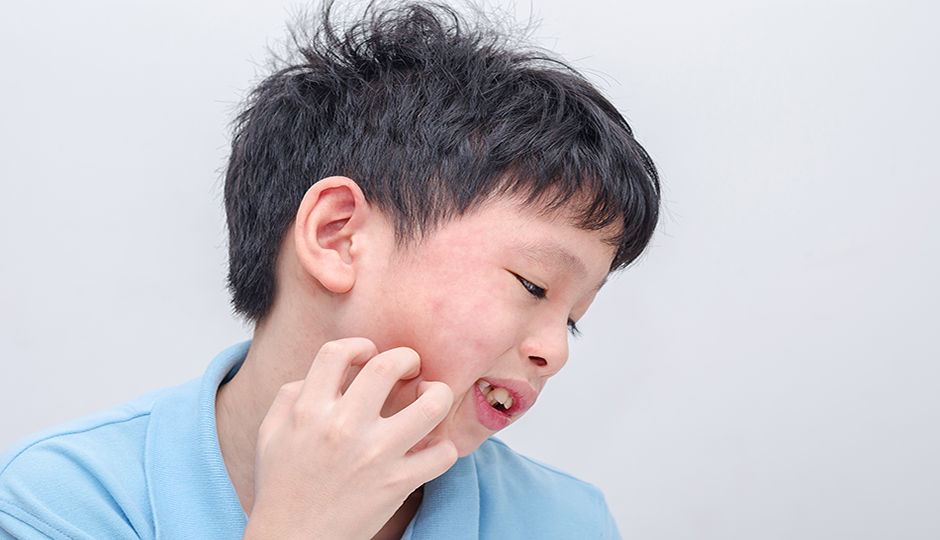The sharing of skin microbiome between children with Atopic Dermatitis (AD) and their healthy close contacts might contribute to disease recurrence
Published: 14 Sep 2022

Copyright: parinyabinsuk
Patients with moderate to severe Atopic Dermatitis (AD) experience intense skin irritation and itchiness that causes them to scratch uncontrollably and may also experience complications such as bacterial skin infections. Now, recent research has revealed that the sharing of skin microbes between patients with AD and their caregivers, may be the cause of the transference and perpetuation of AD in these patients.
AD is a common chronic skin condition that occurs in 15 to 20% of children. The flares happen because of a predominance of Staphylococcus aureus (S. aureus) and reduced microbial diversity.
The study was published in the Journal of Allergy and Clinical Immunology, led by Dr Elizabeth Tham from the Department of Paediatrics at the Yong Loo Lin School of Medicine, National University of Singapore (NUS Medicine) and Dr Chia Minghao from A*STAR’s Genome Institute of Singapore (GIS), and including scientists from both organisations as well as the A*STAR Skin Research Labs (A*SRL).
The study sought to understand shared skin microbiomes between children with AD and their parents or caregivers. The team recruited 30 children with moderate to severe AD, between the ages of 0 to 10 years old, and one healthy primary caregiver for each child. The primary caregiver had to be someone who was living in the same household as the child and spent at least 8 hours a day with the child for the past 6 months.
It was discovered that there were distinctive microbial signatures in the healthy caregivers which were similar to the non-lesional skin of AD children, despite the absence of any skin disease in the caregivers.
In particular, a higher proportion of S. aureus abundances compared to the commensal Staphylococcus hominis (the A/H ratio) was found to be a sensitive and specific marker for affiliation to an AD household, regardless of whether they were otherwise healthy adults or children. This means that the ongoing skin microbial sharing between the children with AD and their caregivers could increase the tendency for the recolonisation of S. aureus strains in the child which would exacerbate their skin inflammation.
When treatment ceases, the skin of AD patients is often quickly recolonised with S. aureus, which could contribute to recurrent disease. Therefore, to remedy AD would require a multi-pronged approach, instead of a one-stop-shop solution.
Read more in the press release here.
News Coverage

